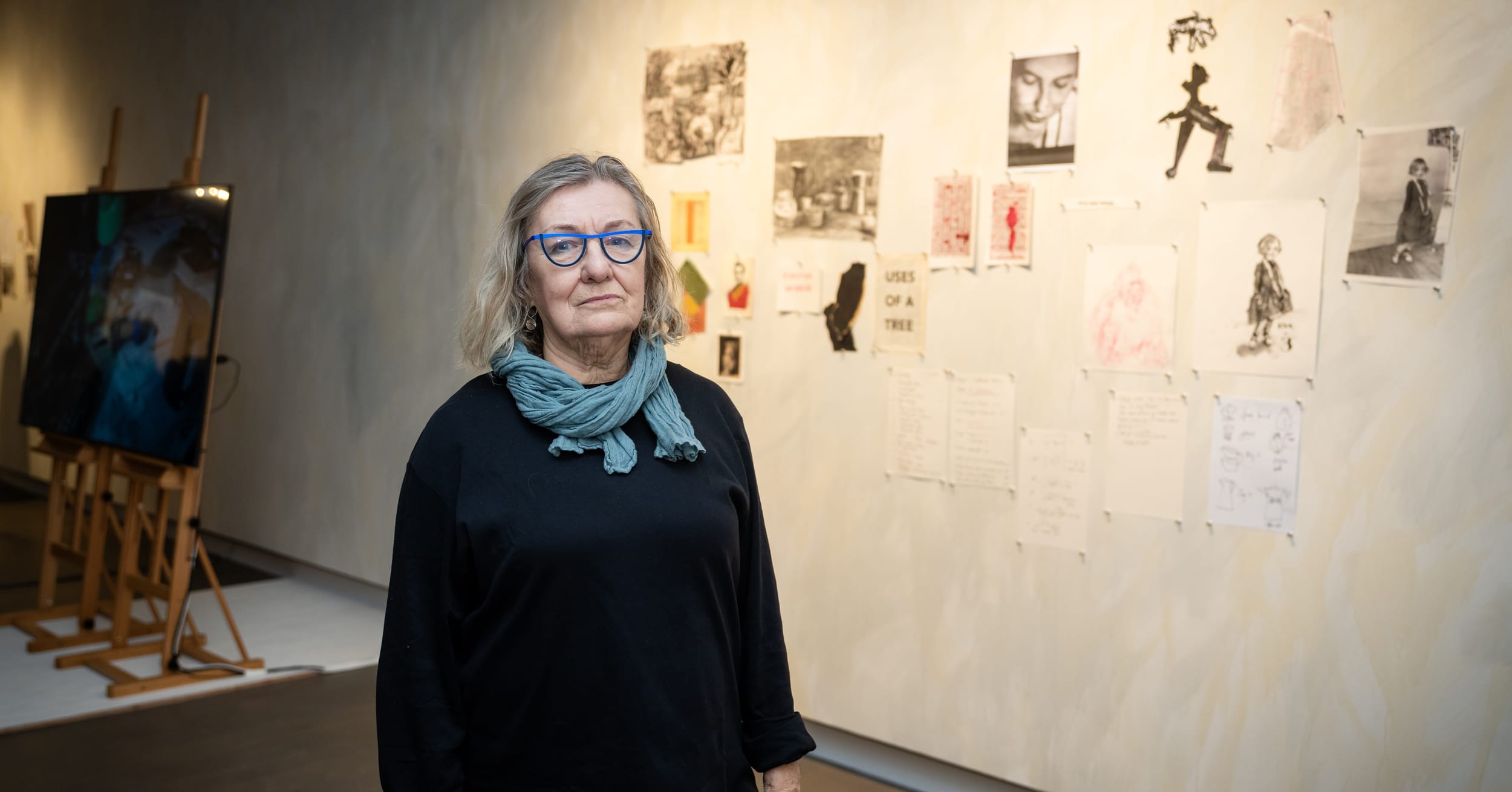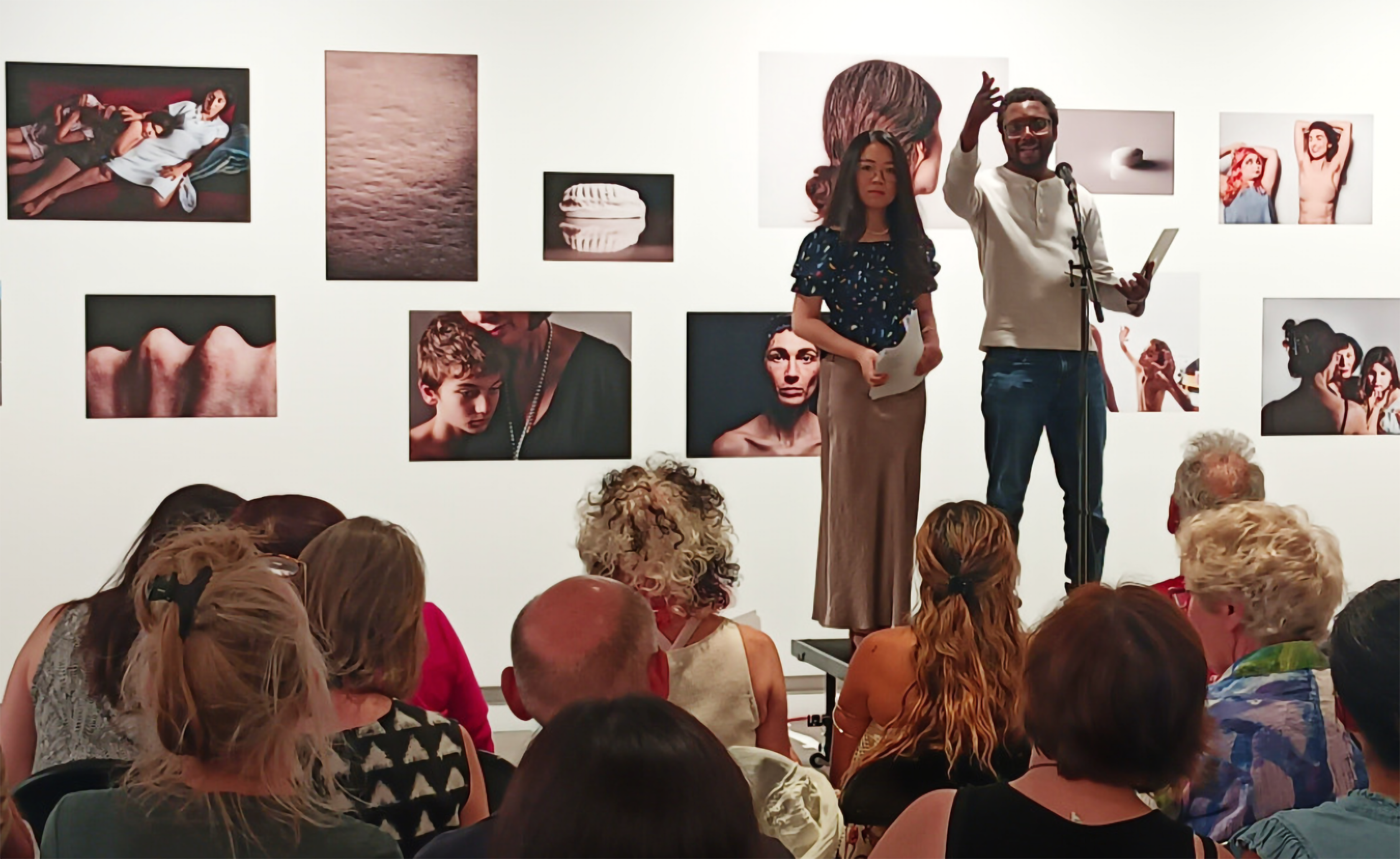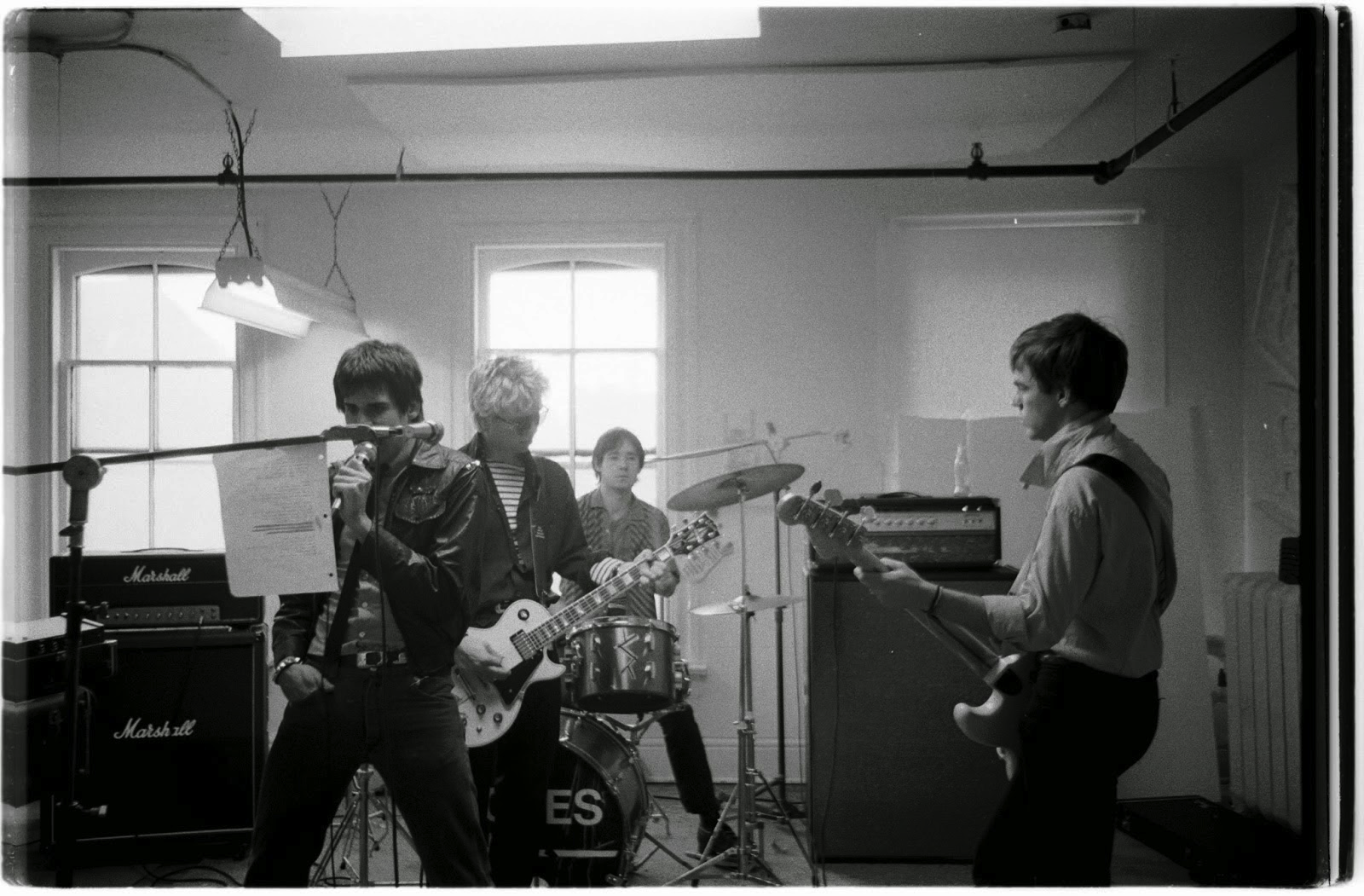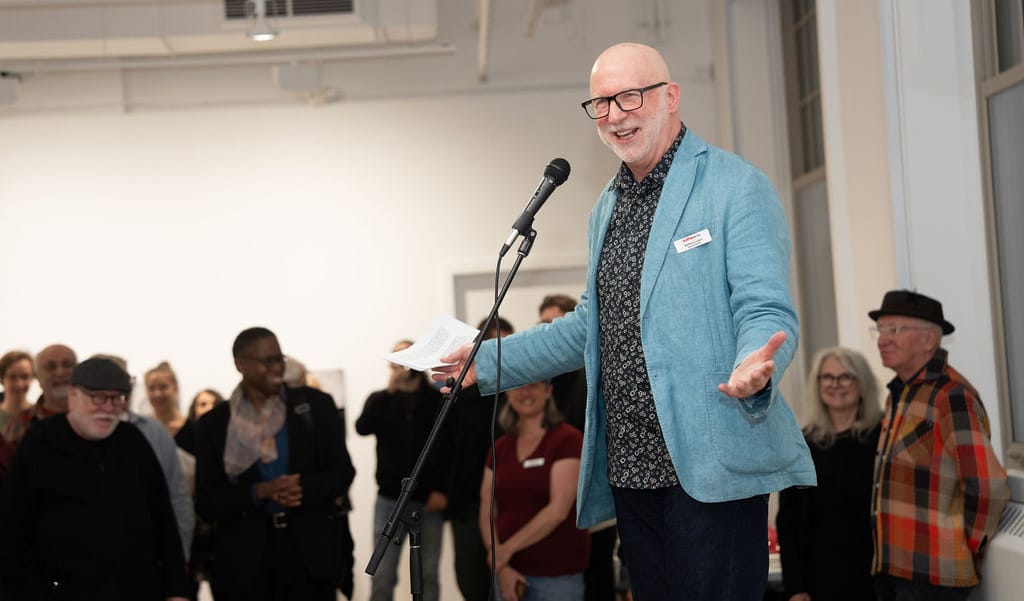Divine Intervention with Sheila Heti and Adam Sol
In a wide ranging on-stage conversation, the novelist Heti and Sol the poet discuss the role of religion in their work, how the loss of a parent can upend one's universe, and less reverent ways of naming God.
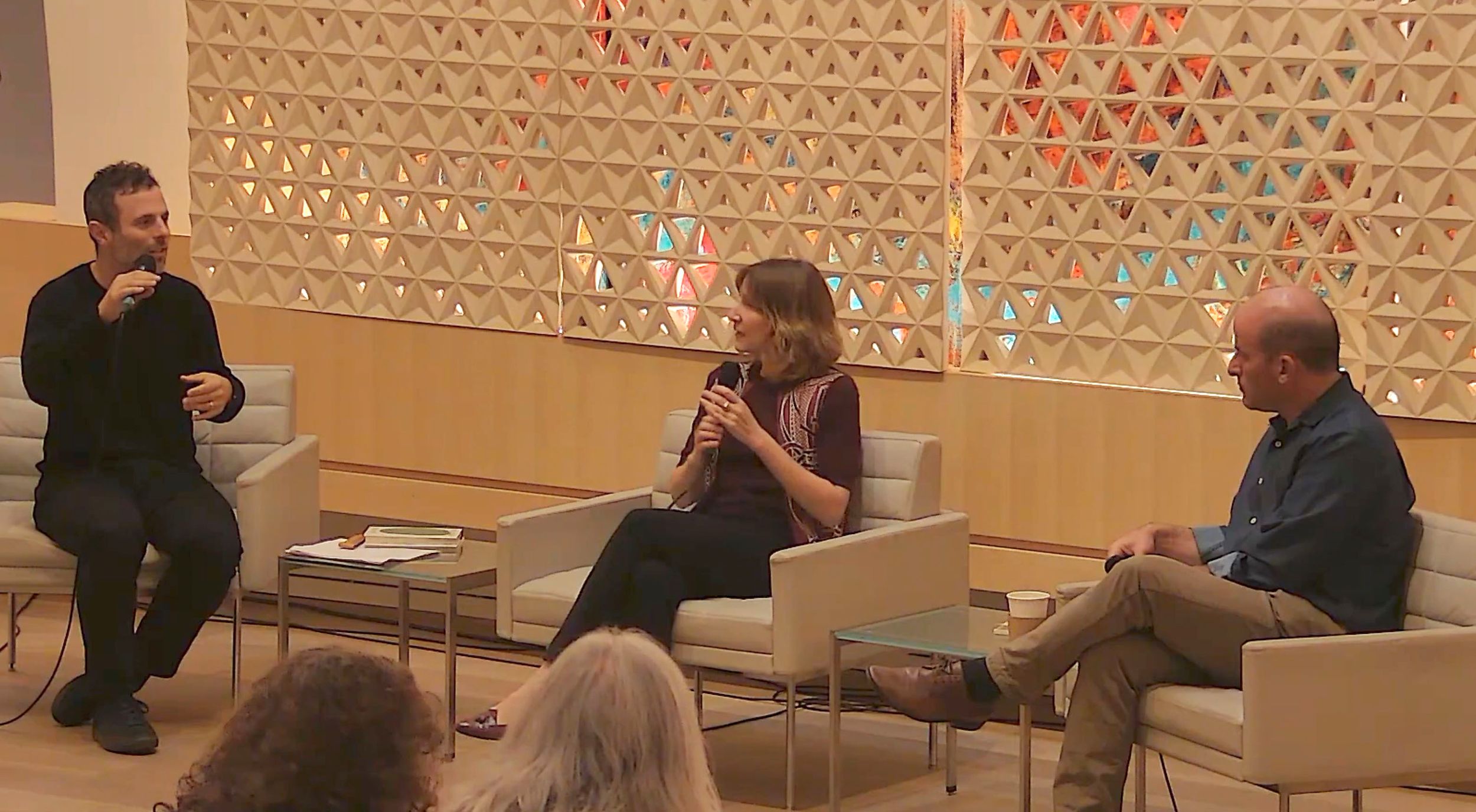
As part of programming around the 2023 Vine Awards for Canadian Jewish Literature, on September 10th the Koffler Centre presented the panel "Divine Intervention: Stories, Characters, Writers" featuring two of this year's shortlisted authors—Sheila Heti, for her novel Pure Colour in the fiction category, and Adam Sol, whose Broken Dawn Blessings is nominated for poetry. The panel was moderated by Eric Beck Rubin, a cultural historian who writes about architecture, literature, and psychology. His debut novel School of Velocity was named one of the Guardian’s Best Books of the Year in 2016. The panel was hosted by the Holy Blossom Temple in Toronto.
Winners of the 2023 Vine Awards will be announced on October 12 at a ceremony in Toronto. (Visit here for a complete list of nominees.)
The text of the panel discussion has been edited for clarity and length.
*
ERIC BECK RUBIN: Adam, I wanted to start with you, because you had this beautiful description of what a poem is involving a bubble. I'm going to leave it to you to fill in what that was.
ADAM SOL: The idea is that it's like you're creating a bubble out of language, and you sort of set it spinning and hope that it'll float on its own. Which means that you never know if it's tethered to the ground or not. It's not supposed to be tethered to the ground, you just hope it floats.
RUBIN: You were saying that in reference to Pure Colour, which I think more than your previous two novels, Sheila, really fits that description. I wonder if you agree.
SHEILA HETI: That it's a bubble that floats? Adam was talking about that description earlier in reference to poetry, that a poem has to be complete in itself and sort of weightless. Pure Colour is more spiritual than my other books, because it deals with death and it deals with nature. And when I was writing it, I was thinking a little bit about how I can write a novel that works the way a painting works. Maybe in that sense it's more like a bubble that floats?
My best friend is a painter, and I’ve always envied that with a painting you can just take it all in at one glance, you know? With a novel, you have to take one page in at a time. So I was trying to think, how could you write a novel so that, once it's done, you can see it in sort of one glance in your memory or imagination, the same way you see a painting. In that sense the bubble metaphor makes sense.
RUBIN: That's something I admire very much in your work, which is to take an idea that is so complex, layered, has so much history behind it, but to present it in an almost naive form. Like trying to create a novel as if it were a painting. That comparison strikes me as so strange, how do you even grapple with that?
HETI: I don't know if Adam feels the same way, but to me making art is like just being a kid and having this amazing puzzle. It's hard, but it's also fun. I always want to do something impossible, or I always have some impossible goal in mind.
With the book that I'm writing now, I keep thinking I want to write a book that eats its own tail. I don't even really know what that means. But it kind of excites me when I think about that phrase, a book that eats its own tail. It's almost like you have a dream about the book before writing it, like you're pursuing something that you can't ever achieve, but it leads you forward.
SOL: We've both published a bunch of books, so you start to trust yourself that the absurd thing that you're trying to do will somehow work. That it'll float, right?
This morning I was working on a poem, and I was like, “Can I put the word 'pshaw' in a poem?” It’s maybe the stupidest word in the language, and it's, like, can I manage that? What would be the circumstances in which I could use the word pshaw in a poem? Okay, let's see if I can do that.
I haven't written the poem yet, but it’s those kinds of test cases that help you to trust your instincts enough to make something that might work.
RUBIN: It seems to me, Sheila, that you’ve always trusted your instincts because you take such incredible risks in your writing. But unlike your previous novels, Pure Colour takes risks spiritually. In terms of discarding the rational, does this mark a change?
HETI: Yes, probably. But it also has to do with the themes that I was dealing with. A lot of this book was written in the wake of my father's death. You aren't really having a rational experience of the world when you've lost a parent, or somebody so close to you like a parent. You are experiencing the world in a kind of surreal way because this anchor of reality has been taken away.
You're sort of floating in the universe. To me that's what the experience of grief was. It was like being completely untethered to the social world, to the structure I had inhabited previously. You don't really realize how much, or I didn't realize, how much a parent was an ordering principle of one's life. And then the parent goes and, you know, you don't have this.
Even if you're a grown up, there's still a sense in which—maybe not everybody feels this way—I felt kind of protected by the fact that I had my father alive. And then, when he was gone, I was like, “Oh, I don't really know what the universe is actually.” I only know what it is with him in it. So the surreal or the emotional or this new quality you see in my work is a result of the book being about that, and written in the wake of that huge loss. Sort of feeling like a new creature, and just born.
RUBIN: I am going to try to now go back to the theme, or purported theme, which is divine intervention. Notwithstanding where we are, which is a synagogue, and notwithstanding that this panel is organized around Jewish book awards, I think that anybody who invokes the subject of God, without some kind of external reason for it in conversation, is possibly psychotic. You can talk about sports, you can talk about art, your family, physical ailments, but you just don't talk about God to your friends. So my question, really, and I'll start with Adam, is how dare you?
SOL: In this house, right? On the other hand, how can you not? These are poems, this is not casual conversation. It’s a different medium. And when the big things happen, you think about the big things. And you have things to say toward the big things. So that's naturally where I went.
And also, for me, it's a morning book—no “u”. I was thinking about the things that happen in the morning. And so the morning prayers speak to me. Even the speed of them, the way we do them rapid fire at shacharit service, you know, that rhythm, short and quick, thanks for giving me clothes, thanks for waking me up, giving rest to the weary… which don't seem to cover everything and sort of cover everything? So I wanted to direct it in that way.
And then the question is, who are you speaking to, right? In some ways, if you write to publish, then you're always thinking about this listener or reader who is in a weird way like God.
RUBIN: Very much in this collection. Definitely, the listener of these poems struck me as being God the interlocutor. The person the narrator is speaking to, speaks back either between the poems or in the actions described in the poems. So God is more than a subject or addressee, definitely a participant.
Now that I've cut you off, I also want to note that these are some of the terms that you use to describe God: Buster, You, Bossman, The Unresponsible, Pale Sufferer, Chief Flunky, Absent Manager, Uncle. And at one point, on page 52, there's the possibility you can interpret yourself, the speaker, as inhabiting the role of God.
SOL: Yeah, well, we've got a lot of names for God. And I just added a few, I guess. I feel like God can handle it. You know, whichever version of God you do or don't believe in, adding more names to that force is not going to do damage to it.
For me, Jewish tradition literally means to wrangle, to wrestle with God. And that includes name calling for me, you know, and when you're mad, you can call it Buster. When you don't know what it's doing, you can call it Chief Flunky. That seems to be part of my religious sensibility, that we have to come to it as we are and where we are. If it's in anger, if it's in worry, if it's in grief, then we have to use the language that's appropriate to us. And again, God will figure that out. God's a good translator, whatever that is. It’s hilarious that you could offend God.
So I trusted that impulse, I guess, You know, I've got Tevye in my head too, who likes to talk to God in sort of dumb ways too. So I’m sort of joining that tradition.
RUBIN: Sheila, I'll just ask you as well, you could have used the word creator, the first artist, you could have used any number of words, but you used the word God right at the beginning and throughout the book. Is that something you struggled with? What are the opportunities of that word, or how do you see it?
HETI: I don't know, I guess like Adam I don't feel embarrassed to use the word. It doesn't feel like something separate from daily life. It doesn't feel like a taboo word. And it feels like a word that's native to literature and poetry. It's strange that in this time, we don't use it and that we consider it off limits. I think that this is an anomalous time, us not using it.
RUBIN: Following on from that, I was thinking about how, in How Should a Person Be, Moses is a character and in a sense a role model. And of course there's this beautiful evocation of the story of Jacob wrestling with the angel in Motherhood. And so I was looking for the biblical aspects in Pure Colour. And I thought, well, there's God, and yes, there's a story that is like the remaking of the world in Noah's Ark. But for me, this is more an Adam and Eve story, in so far as you have the story of a man and a woman and for a long time they inhabit paradise together.
HETI: I don't know if it's... paradise, exactly. I mean, their spirits go into a leaf in a tree.
I thought of it more as a kind of limbo or something before the next stage. I mean, again, do the dead ever really leave us? In my case, my father was especially present in the year and years following his death. But what is the space you inhabit with the loved one who dies? It's not as though I'm not here in the physical world. Their being in the leaf together is a way of saying, yes, you inhabit this space, but you can't really describe what the space is, it doesn't really make sense.
It's something that you can't quite touch, even if it feels real. So I don't really think of it as paradise. I more felt it as here, but not here. Like a leaf in a tree is here, but you being in the leaf in the tree means that it's not quite here. I thought it was sort of in between death and life.
RUBIN: Adam, when I tried to pin you down on the years in which your poems are set, what period they reflect, you sort of said 2015, 2016. Is that a year that has kept going for you?
SOL: I deliberately made it a little mushy about when it takes place, year wise. I mean, all of the issues brought up are ongoing. There's still police violence, for example, I don't know if you've heard, but it hasn't stopped. But I wasn't thinking about historical time. I was thinking very much about, you know, morning versus evening, as it's a morning book. So I was thinking about time in that sense, but not so much about historical time.
HETI: What made you want to write a morning book?
SOL: Some of it is just about my practice, when I was waking up, when I was writing. Actually it's a real problem now, like I can't write in the morning anymore. Last summer, when school ended and I had a little more time, and I would wake up early, sit my desk, and I was like, "Oh no, this is done, this is over." It took me all last summer to realize the afternoon is better now. I'm sure it impacted the way I was writing. Now if I'm writing in the afternoon, it faces a different direction.
HETI: Is it just because of the book being done, you're sick of it, and you don't want to still be in the world of that book anymore?
SOL: It was definitely a little bit of that. Just wanting to do the next thing, right? What is it Frost said? That you try to write every poem as radically different as possible from the last thing you wrote, which is a way of admitting that you can't because you still are inhabiting your own skin, your own language, and your own perspective.
HETI: I always feel that with every novel, or every book, that I want it to be radically different from the last. But to do that with a poem seems so much more... there has to be so much more change in your life, like, that's so much turning, and turning, and turning, and turning.
SOL: It's a different approach to the language, right? It's almost a musical thing for me, like, I want to hear a different tune in my head when I'm working. Right now, I'm actually trying to write louder. I want to bang a little bit, and that's kind of fun for me.
HETI: Pshaw. I don't think I could ever write with a different tune. To me, I feel like there's just always the same sound that I want out of the sentence. It's so deep inside my brain, that sound that I want, or that tune, or the way a sentence sounds, right or wrong.
SOL: I admire that about your work. Like, you take that kind of sparkly attention of yours and put it on something else. And what we do as readers is follow that electric attention.
I keep thinking about the main character in Pure Colour turning off the lamps in the lamp store where she's working, and then seeing that the person across the way is also turning off lamps because there's another lamp store across the street. How it’s just completely in your voice, that recognizable Sheila Heti voice, and yet, there's also this throwaway quality to it.
And you think about that image—what does that mean about people in grief, and people trying to communicate to each other? Like how during the pandemic we were all just turning the lamps on and off in our individual little houses. And like suddenly that kind of the way it crystallizes, um, in just this, you know, it, it is, I always feel like, like that,
That voice of yours just always sounds off the cuff. It’s a remarkable power because that's really hard to pull off. And it sort of allows us to stumble into these insights that are unique.
HETI: Thank you.
RUBIN: I agree that there's incredible consistency of voice. In Pure Colour, there is something slightly biblical, at least in the reach of the questions that you're asking. Is that part of your world of literature, or is it part of your literature second hand, through the literature of others?
HETI: I don’t know, we were talking about this earlier. I went to Hebrew school here, and I went to preschool here, my family lived nearby, that's where I grew up. I think we came once in a while for the high holidays, but mostly not really. My father really didn't believe in God, not in a very vocal way, my mother too, in a very rationalist kind of way.
Yet my fondest memories of growing up were from Passover dinner at my grandmother's house, or having Hanukkah, or having the holidays. There was something about the repetition of it, and the fact that it was connected to the seasons. That we would tell the same story, and then my father would argue with the story, and say it couldn't have historically been that way. Then my mother would cry, and my grandmother would cry, we'd all get in a fight, and everyone had a horrible time.
I loved those memories so much. That's where the meat of life is for me. And I was always dazzled by this idea that for thousands of years, Jewish families have been coming together and telling these stories. From a very young age, I had this sense of, I'm not just in this present historical moment, I'm part of this historical lineage that's been doing the same thing for thousands of years.
When I wrote my first book, The Middle Stories, I didn’t want any pop cultural references, because I understood that a story could be told for thousands of years. So if you put Coca-Cola in your stories, how are they gonna understand that… Well, there will probably still be Coca-Cola in a thousand years. But it was always this ambition to make stories that could travel through time.
There's always been a desire to have a book that inhabits now, but also has that… you know when you put two mirrors facing each other, and it’s like the image goes all the way into the distance and into the future. I spent a lot of time standing between two mirrors when I was a child.
RUBIN: There is a line in Pure Colour, I’ll try to paraphrase it, that we want the art to aspire to the condition of being plants. If I got it right.
HETI: Yeah, like the idea that a book should be as natural as a tree. Art is part of nature, art is human nature, and human nature is nature. I guess that's the bubble idea as well.
SOL: You want to make something that has its own organic life. Sort of connected to you in the same way a child is. But therefore also increasingly apart from you, too.


